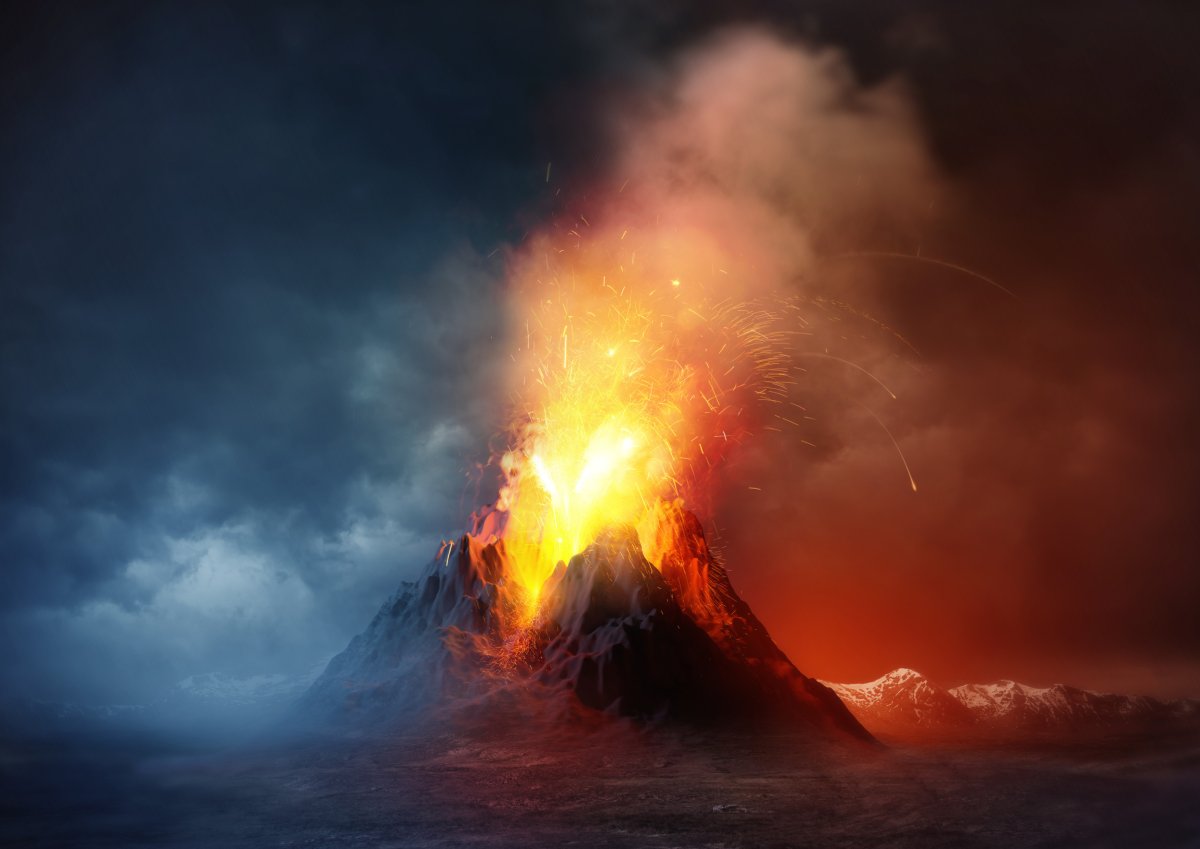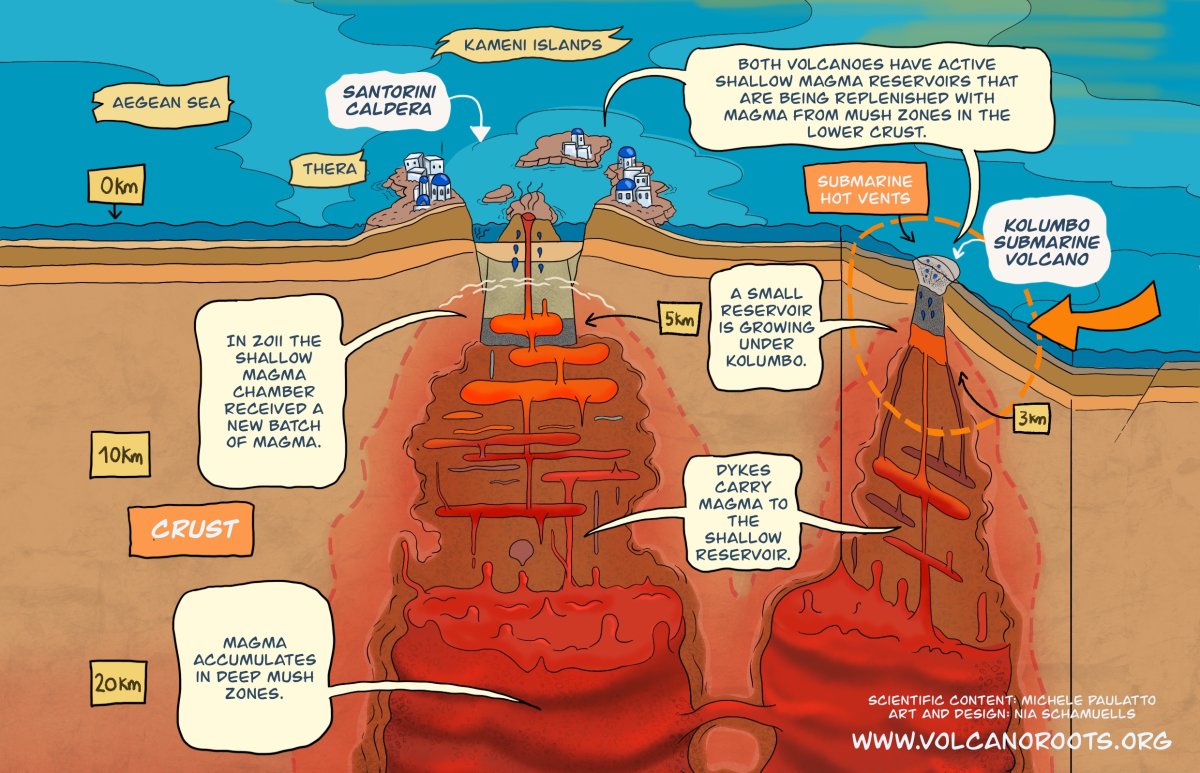A giant magma chamber has been discovered growing underneath an active submarine volcano in Greece.
Scientists, who have published a study on the chamber in the American Geophysical Union's Geochemistry, Geophysics, and Geosystems, have determined that the magma chamber under Kolumbo increases the chances of a future eruption. They believe it could reach a critical point in the next 150 years and pose a "serious threat."
Kolumbo last erupted in 1650 C.E. During this eruption, the explosion breached the sea surface and killed 70 people. This eruption occurred after magma reservoirs beneath the volcano continued to grow and accumulate at a large scale.
Scientists believe that this previously undiscovered magma chamber is growing at an average rate of roughly 4 million cubic meters per year since the submarine volcano last erupted. The amount of melt in there is now 1.4 cubic kilometers, the study reported.

It is now reaching a similar volume that caused the 1650 eruption, meaning another large one may be around the corner as its rate of growth counteracts its cooling and crystallization processes.
Although scientists are not able to predict the exact time of the next Kolumbo eruption, they are now calling on better monitoring facilities near the volcano.
The magma chamber was discovered using full-waveform inversion technology, which records ground motions and analyzes wave velocities near volcanoes. Magma chambers can be detected by a reduced velocity of seismic waves traveling beneath the seafloor, the study reported.
Michele Paulatto, a volcanologist at Imperial College London, U.K., and second author of the study, said in a press release: "Full-waveform inversion is similar to a medical ultrasound. It uses sound waves to construct an image of the underground structure of a volcano."

The study—prior to which detailed data was unavailable—helps inform scientists about submarine volcanoes in the region.
Kolumbo could potentially produce a highly explosive eruption. Scientists compare it to the recent eruption of Hunga Tonga, which last erupted in January 2022 and caused tsunami waves up to 66 feet high.
Scientists report that a Kolumbo eruption could be more destructive than the recent Tonga eruption due to its close proximity to Santorini—which is a well-known tourist destination. Popular hotspots on the island are only 4 miles from the volcano.
As the volcano is also in a shallow area of the sea, lying 1,600 feet below the surface of the ocean, this could make the explosion even bigger.
Underwater volcanoes like this have the potential to cause destructive tsunami waves as well as ashfall.
Although an explosion does not appear imminent, the findings of the study show scientists that the area needs increased monitoring.
"We need better data on what's actually beneath these volcanoes," Kajetan Chrapkiewicz, a geophysicist at Imperial College London and lead author of the study, said in a press release. "Continuous monitoring systems would allow us to have a better estimation of when an eruption might occur. With these systems, we would likely know about an eruption a few days before it happens, and people would be able to evacuate and stay safe."
Do you have a tip on a science story that Newsweek should be covering? Do you have a question about volcanoes? Let us know via science@newsweek.com.
References
Uncommon Knowledge
Newsweek is committed to challenging conventional wisdom and finding connections in the search for common ground.
Newsweek is committed to challenging conventional wisdom and finding connections in the search for common ground.
About the writer
Robyn White is a Newsweek Nature Reporter based in London, UK. Her focus is reporting on wildlife, science and the ... Read more
To read how Newsweek uses AI as a newsroom tool, Click here.








